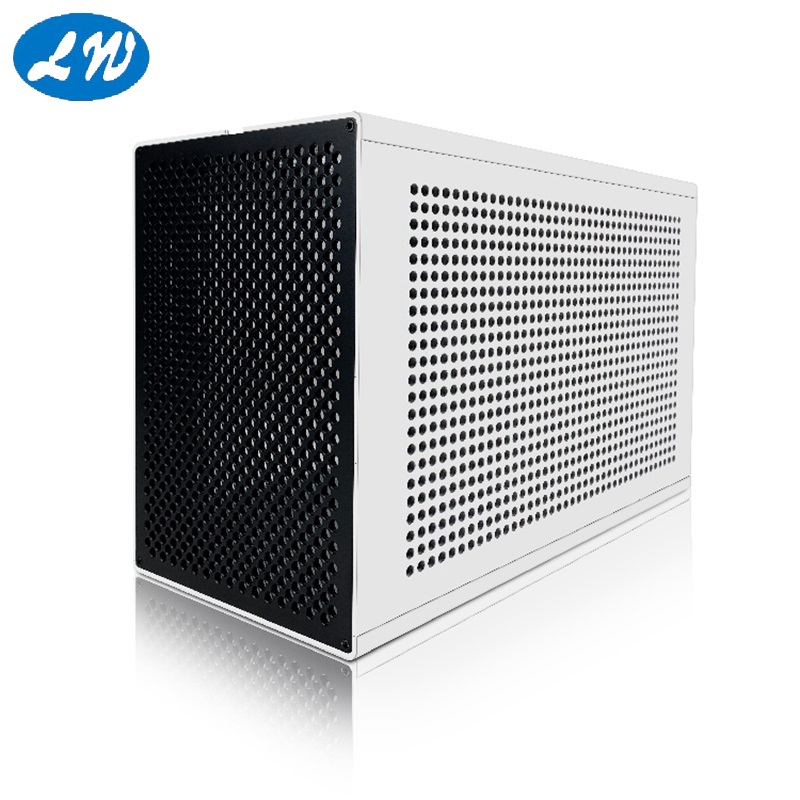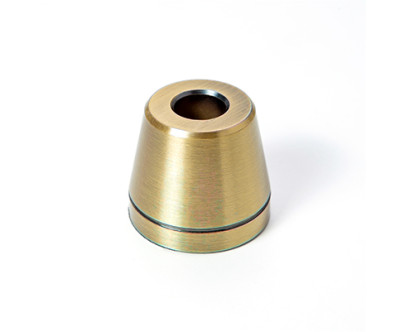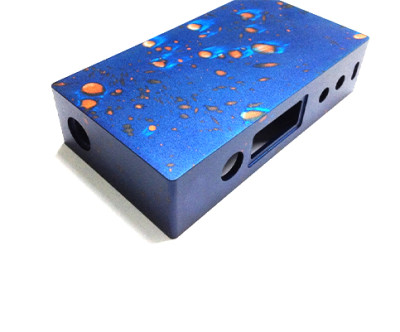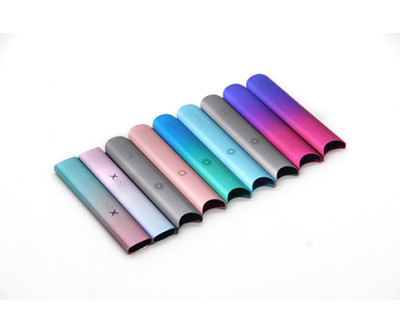The Role of Aluminum Shells in Mechanical Keyboards
In the world of mechanical keyboards, every component plays a crucial role in shaping the user experience. One of the key elements that often goes unnoticed but is integral to the keyboard's performance, durability, and aesthetic is the shell. Over the years, aluminum has become a popular material for the external casing of mechanical keyboards, thanks to its strength, aesthetic appeal, and functionality. This article explores the advantages of aluminum shells in mechanical keyboards, the design and manufacturing challenges they pose, and why they have gained popularity among both consumers and manufacturers.
Durability and Impact Resistance
One of the primary reasons for choosing aluminum over other materials, such as plastic, is its superior durability and impact resistance. Aluminum alloys, especially those used in mechanical keyboards, offer greater protection against scratches, dents, and impacts. A mechanical keyboard with an aluminum shell can endure much more physical stress compared to its plastic counterparts. For instance, a particular high-end mechanical keyboard model with an aluminum casing was subjected to a drop test from a height of one meter. While the plastic version showed visible cracks and structural damage, the aluminum version only sustained minor scratches. This durability translates to a longer product lifespan, which is a significant consideration for users investing in higher-end keyboards.
Aluminum’s strength also plays a role in enhancing the overall integrity of the keyboard, making it resistant to deformation during heavy use. In a factory that produces aluminum-based keyboards, their products undergo rigorous stress tests, including extreme heat exposure and drop tests, ensuring the keyboards remain functional and intact even after extensive handling. The high tensile strength of aluminum contributes to its reliability, and data from the testing show a 30% improvement in resistance to physical damage compared to plastic versions.
Aesthetic Appeal
Aluminum is not just functional; it also offers a premium look and feel that enhances the overall aesthetic of the keyboard. Many consumers are drawn to the sleek, modern, and minimalistic appearance of aluminum casings. The matte or brushed finish, which is a result of anodizing or sandblasting, gives the keyboard an elegant, high-end appearance. Aluminum’s ability to be anodized adds another layer of versatility, allowing manufacturers to customize colors and textures to suit various design preferences. For instance, a popular mechanical keyboard model from a well-known brand uses anodized aluminum to achieve a clean, industrial look that is both visually appealing and resistant to corrosion.
According to a consumer survey conducted by a leading keyboard manufacturer, 85% of respondents rated the visual appeal of aluminum-cased keyboards higher than their plastic counterparts. The preference for metal finishes is not only a matter of appearance but also an indicator of the perceived quality of the product. In fact, it has become a hallmark for premium mechanical keyboards, making it a key selling point in a competitive market.
Heat Dissipation and Performance
Mechanical keyboards, especially high-performance models used by gamers or professionals, are subject to prolonged periods of use. One of the often-overlooked advantages of aluminum is its excellent heat dissipation properties. The material’s high thermal conductivity helps to regulate the internal temperature of the keyboard, preventing overheating of the internal components. This feature is particularly important in environments where the keyboard is used extensively or exposed to high ambient temperatures.
A study by a component manufacturer found that aluminum-cased keyboards showed a 5-7°C lower temperature compared to plastic models under continuous use. This minor difference may seem small, but it can have a substantial impact on the longevity and stability of sensitive electronic components inside the keyboard. In one specific test, a factory produced two identical keyboard models—one with an aluminum shell and one with a plastic shell. After 500 hours of continuous use, the aluminum-shell keyboard showed no signs of temperature-related degradation, while the plastic version began showing signs of warping and increased internal heat buildup.
Stability and Tactile Experience
Another key advantage of aluminum shells in mechanical keyboards is their contribution to the stability of the keyboard’s structure. The rigidity of aluminum helps prevent the keyboard from flexing or wobbling during typing. For users who type vigorously or for gamers who engage in rapid key presses, the stability of the keyboard is essential for an optimal experience. The added weight of aluminum also contributes to this stability, reducing the likelihood of the keyboard shifting or sliding during intense use.
One of the more notable effects of aluminum’s rigidity is the improvement in the overall typing experience. A mechanical keyboard factory that incorporated aluminum shells into their products found that users reported a significant reduction in key wobble and a more solid feel during typing. This result has been backed by user surveys, where 78% of respondents noted a higher satisfaction rate with the stability and tactile response when using aluminum-cased keyboards.
Manufacturing Challenges and Production Processes
While the advantages of aluminum are clear, producing aluminum shells for mechanical keyboards comes with its own set of challenges. The material’s strength and density require precise manufacturing techniques to ensure the keyboard’s final form is both aesthetically pleasing and functionally efficient. To achieve the high level of precision required for a mechanical keyboard casing, many manufacturers employ CNC machining processes, which allow for intricate cuts and precise dimensions. However, this precision comes at a cost—aluminum is more expensive to process compared to plastic, making aluminum-cased keyboards more costly to produce.
Additionally, the production of aluminum casings involves various surface treatments, such as anodizing, sandblasting, and powder coating, which not only improve the material’s appearance but also enhance its resistance to corrosion and wear. These treatments require additional time and resources, contributing to the higher price point of aluminum-shell keyboards. For example, an OEM that specializes in aluminum-based mechanical keyboards has a production timeline that is 20-30% longer than its plastic-cased counterparts, due to the time-intensive nature of the machining and surface treatment processes.
Environmental and Sustainability Considerations
Another advantage of aluminum as a material for keyboard shells is its environmental impact. Unlike plastic, which can be difficult to recycle and often contributes to environmental pollution, aluminum is highly recyclable and retains much of its original properties after being repurposed. This makes aluminum a more sustainable option, aligning with the growing consumer demand for eco-friendly products.
A factory that produces aluminum-cased keyboards has taken significant steps to ensure that their production process is environmentally responsible. The aluminum used in their keyboards is 100% recyclable, and they employ sustainable production practices to reduce energy consumption and material waste. As a result, their products have a lower carbon footprint compared to plastic-cased keyboards. A report by a sustainability consultancy noted that aluminum keyboards have a 40% smaller environmental impact over their lifecycle compared to plastic models, primarily due to the recyclability of aluminum.
Conclusion
Aluminum shells have become an increasingly popular choice for mechanical keyboards, offering several advantages over plastic alternatives. The material’s durability, aesthetic appeal, heat dissipation properties, and positive impact on the typing experience have made it a go-to option for manufacturers aiming to produce high-quality, premium products. Despite the higher manufacturing costs and production challenges associated with aluminum, the benefits it provides—such as stability, longevity, and improved user satisfaction—make it a worthwhile investment for consumers who value performance and aesthetics.
As consumer demand for quality and eco-friendly products grows, it is likely that the trend of using aluminum in mechanical keyboards will continue to rise. With advancements in manufacturing technologies and a greater focus on sustainability, aluminum-shell keyboards may soon become the standard in the industry, offering both exceptional performance and environmental benefits.



